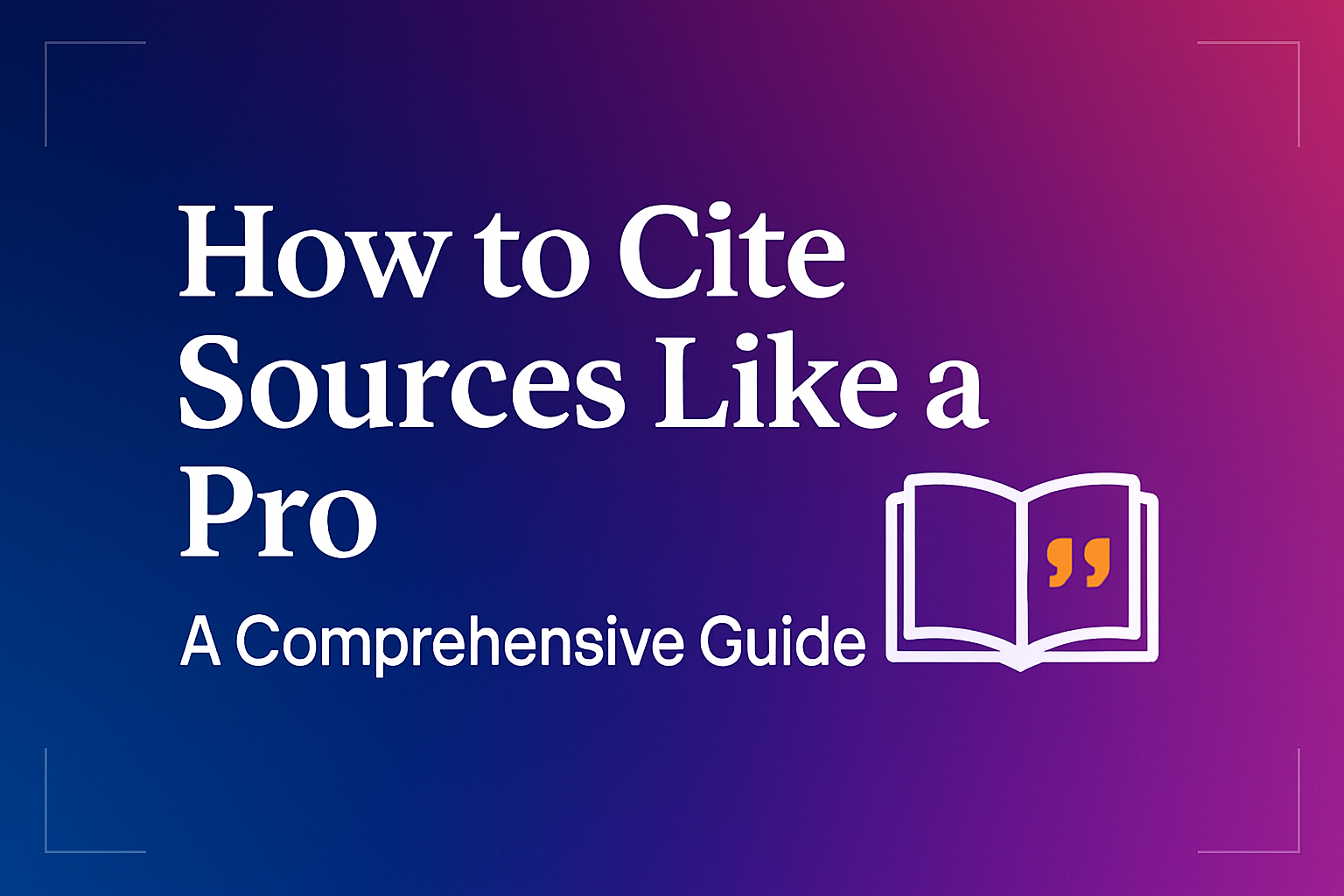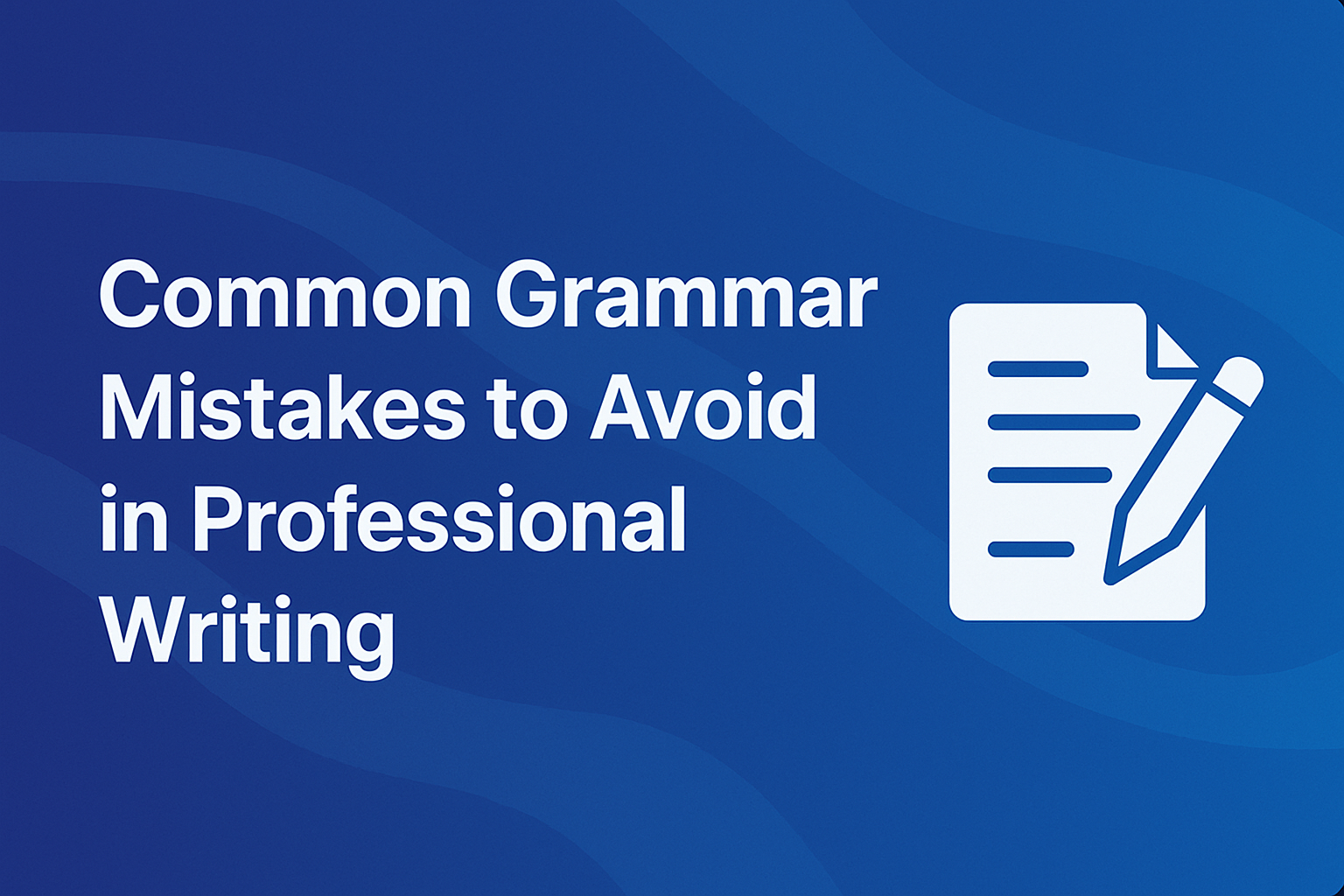
How to Cite Sources Like a Pro: A Comprehensive Guide
Master the art of citing sources with this comprehensive guide covering various citation styles, common mistakes to avoid, and best practices for academic and professional writing.
Read articleCheck your papers for plagiarism with our advanced AI tools


Even the most skilled writers occasionally make grammar mistakes. In professional contexts, however, these errors can undermine your credibility and distract from your message. This guide highlights common grammar pitfalls and provides straightforward solutions to help you produce polished, error-free writing.
Grammar serves as the foundation of clear communication. When you make grammar mistakes in professional writing:
As one study found, 74% of hiring managers reported that grammar errors in resumes and cover letters significantly decreased a candidate's chances of being hired.
The subject and verb in a sentence must agree in number (singular or plural).
❌ Incorrect: "The collection of reports have been submitted."
✅ Correct: "The collection of reports has been submitted."
The subject is "collection" (singular), not "reports," so it requires a singular verb.
A comma splice occurs when you join two independent clauses with only a comma.
❌ Incorrect: "The meeting starts at 3 PM, please arrive early."
✅ Correct: "The meeting starts at 3 PM. Please arrive early."
✅ Also correct: "The meeting starts at 3 PM; please arrive early."
✅ Also correct: "The meeting starts at 3 PM, so please arrive early."
These occur when a descriptive phrase doesn't clearly connect to what it's supposed to modify.
❌ Incorrect: "Walking into the office, the report was on the desk."
✅ Correct: "Walking into the office, I saw the report on the desk."
The original sentence suggests the report was walking into the office!
Pronouns must agree with their antecedents in number and gender.
❌ Incorrect: "Each employee should submit their report by Friday."
✅ Traditionally correct: "Each employee should submit his or her report by Friday."
✅ Modern acceptable usage: "All employees should submit their reports by Friday."
✅ Also acceptable: "Each employee should submit their report by Friday." (singular "they" is increasingly accepted)
Apostrophes indicate possession or contraction, not plurality.
❌ Incorrect: "The company needs to track it's expenses."
✅ Correct: "The company needs to track its expenses." ("its" is possessive)
❌ Incorrect: "We hired five new CEO's this year."
✅ Correct: "We hired five new CEOs this year." (simple plural)
While not grammatically incorrect, excessive passive voice can make writing weak and unclear.
❌ Passive: "The deadline was missed by the team."
✅ Active: "The team missed the deadline."
Homophones are words that sound alike but have different meanings and spellings. Common confusions include:
| Confused Words | Correct Usage |
|---|---|
| Their/There/They're | Their report was late. There are many errors. They're working on it. |
| Your/You're | Your proposal is approved. You're going to lead the project. |
| Its/It's | The company reached its goals. It's time for a review. |
| Affect/Effect | Budget cuts affect our department. The effect was immediate. |
| Then/Than | We'll review it, then decide. This option is better than that one. |
"Good grammar is like personal hygiene—you may not notice it when it's present, but you definitely notice when it's missing." — William Zinsser
Language evolves, and some traditional grammar rules are becoming more flexible:
It's important to know your audience—more traditional settings may still prefer adherence to conventional rules.
Strong grammar skills are an investment in your professional reputation. By learning to identify and correct these common mistakes, you'll communicate more clearly and project greater competence in all your professional writing.
Consider using Plagly's Grammar Checker as part of your editing process to catch these and other common errors before they undermine your credibility.
This article is part of our professional writing series. Look for our upcoming post on effective business email communication.

Master the art of citing sources with this comprehensive guide covering various citation styles, common mistakes to avoid, and best practices for academic and professional writing.
Read article
Explore how artificial intelligence is transforming language correction, writing assistance, and the broader landscape of human communication.
Read article
Master the art of proofreading with these three essential steps that will help you catch errors and polish your text to perfection.
Read article